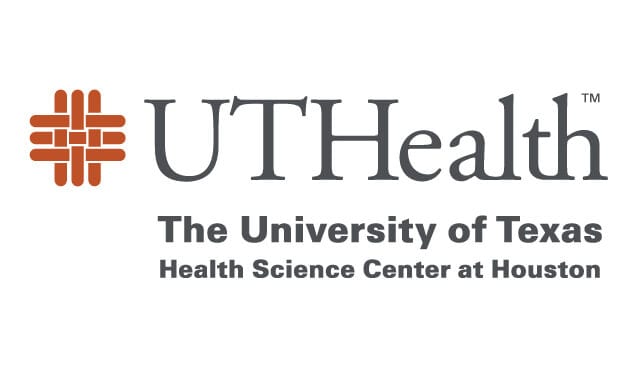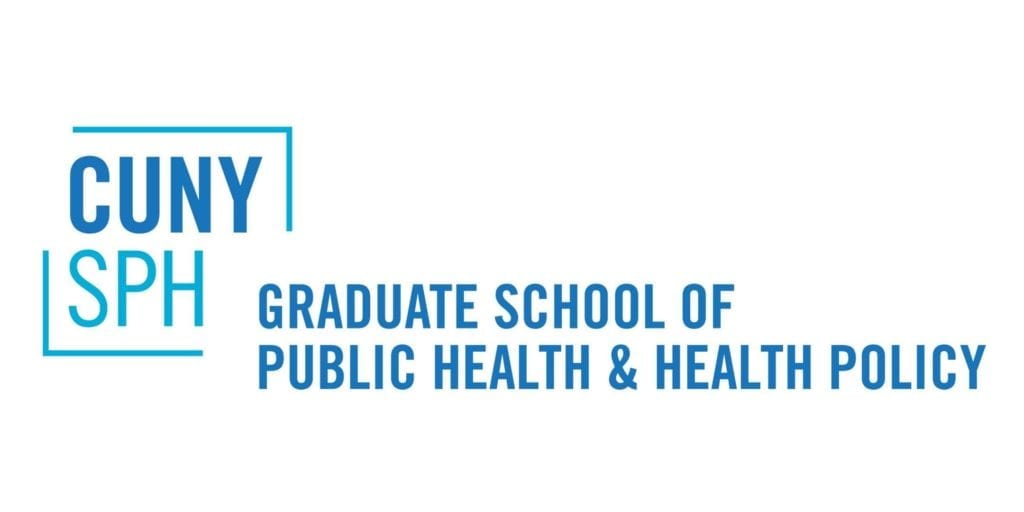
Key Takeaways:
- Notable Health Promotion and Community Health programs are available at schools like the University of Texas Health Science Center and UCLA. These colleges provide in-depth training in community health.
- PhD programs in Health Promotion and Community Health train public health professionals for significant roles in leadership and influence.
- The COVID-19 pandemic has underscored the critical importance of experts in public health initiatives and education.
- The listed programs are ranked based on criteria such as cost, accreditation, reputation, and potential salary outcomes, utilizing data from sources like U.S. News and IPEDS.
- The best PhD in Health Promotion programs or Community Health Promotion trains public health professionals for positions of authority and influence. The global coronavirus pandemic of 2020 placed a spotlight on public health initiatives, education, and disease prevention.
- From the Center for Disease Control to local community health departments, the public sought guidance in coping with a rapidly spreading infection. And with a community health promotion PhD, you could be one of those guiding lights.
Best Health Degrees examined several doctoral-level Community Health Promotion and Education programs and has provided 25 of the most well-rounded ones.
Our Method: Ranking the 25 Best PhD Community Health Programs
To rank the 25 Best Community Health Promotion and Education PhDs Best Degrees, editors researched accredited, trusted programs of all kinds. We ranked programs according to price, accreditation, reputation, and salary potential from our initial pool, using data from IPEDS and Niche, U.S. News and World Report, and other higher education rating publications.
1. University of Texas Health Science Center

Considered one of the top Public Health programs in the country, you can earn a DrPh in Community Health Practice from the University of Texas Health Science Center in Houston.
Students study evidence-based best practice methods and also conduct advanced research in public health. This PhD program requires 48 credit hours. However, some students may need more hours in prerequisites. And the program covers community-led public health programs with a focus on social inequity.
Courses include Working with Diverse Communities, Epidemiology, Ethics and Policy, Public Health Advocacy, Legal Issues in Healthcare, Principles of Adult and Community Education for Public Health Educators, Practice-Based Methods and Design, Program Evaluation, Health Survey Design, and also a doctoral dissertation.
A minimum of a bachelor’s degree with a recommended 3.0 Grade Point Average (GPA), GRE or MCAT scores, three recommendation letters, official transcripts from prior education, and other documents are required for admission to this graduate program. Additionally, the DrPh is administered by the Department of Management, Policy, and Community Health (MPACH). Tuition estimates range from $21,083-$28,738.
Fast Fact: U.S. News and World Report ranks this the #23 Public Health program in the country
Interesting? Click here for more information on the community health promotion PhD!
2. UCLA

This prestigious school offers a PhD in Community Health Sciences. If you’re interested in public health research, then this program prepares you to identify, plan, and evaluate community public health.
You’ll take 48 credit hours of coursework in this graduate program which culminates with two written exams, a research proposal and defense, dissertation research completion, and also an oral defense of the dissertation. Classwork includes studies in Global Health Problems, Population Models and Dynamics, Introduction to Demographic Methods, Community Health Sciences, and also Racism and Public Health: Social Epidemiologic Approaches.
A master’s degree in public health, initial acceptance by a department doctoral advisor, and (although not required) work experience in the field are necessary for admission. Tuition cost for this health promotion sciences program is estimated at $18,143-$33,245 per academic year, depending on residency status.
Fast Fact: UCLA is considered the #1 Top Public School by U.S. News and World Report
Interesting? Click here for more information on the community health promotion PhD!
3. University of Michigan

If you hold a relevant master’s degree, you may want to explore the Health Behavior and Health Education doctoral program at the University of Michigan in Ann Arbor.
This degree aims to prepare you for a variety of public health disciplines in research, teaching, public health service, and also positions of public health leadership. You can expect to take up to 68 credits (including dissertation work) in classes such as foundations in public health, epidemiology, health behavior and education, influences on social and health behaviors, advanced research methods, and dissertation requirements. Nine credit hours are expected in a cognate area in studies such as Public Policy, Women’s Studies, and also Business Administration.
Graduate Student Instructor (GSI), Graduate Student Research Assistant (GSRA), Training Grants, and Fellowships are available for qualified graduate students. Furthermore, the academic year cost for this degree runs from $37,100-$61,264, depending on your residency status.
Fast Fact: Money Magazine ranked UM #8 in its Best Colleges for Your Money and U.S. News and World Report considers it #3 in its Top Public Schools ratings
Interesting? Click here for more information on the community health promotion PhD!
4. Claremont Graduate University

This degree in Health Promotion Science from California’s Claremont Graduate University may be perfect if you want broad training in a range of fields involving public health.
Classes include Biostatistics, Advanced Theoretical Foundations in Health Education & Promotion, Advanced Statistical Methods, Data Analysis, Advanced Research Methods, and also Foundations of Inclusive Pedagogy and Course Design. The intent is to prepare you to identify and develop unique disease prevention and health promotion approaches. Faculty for this health education and promotion program include professors with real public health experience and National Institute of Health grant recipients.
This program’s cost is estimated at $30,000 per semester, and there’s no residency requirement. Department Fellowships are available, and the school also offers Military Fellowships.
Fast Fact: Rated in the Top 100 of U.S. News and World Report’s Public Health Schools
Interesting? Click here for more information on the community health promotion PhD!
5. University of Illinois

If you’re looking for a program that will help you develop health-related research methods and innovative approaches to solving Community Health issues, this program is worth a look.
This PhD provides five areas of research from which to choose. You can pick an area of study in Health Promotion and Behavioral Research, Health Technology from Design to Implementation, Health Disparity, Rehabilitation, Disability and Chronic Illness, and also Applied Health Data Analytics. The program is 64 credit hours in length with studies in coursework such as Advanced Research Methods or Statistics, Seminar, and also Thesis Research.
Applicants to this PhD program must have an approved Master’s degree, a 3.50 Grade Point Average (GPA), GRE scores, a personal statement, and recommendations. Estimated tuition charges are $27,116-$47,690, depending on your residency status.
Fast Fact: This Urbana-Champaign university boasts 24 Nobel Prize winners
Interesting? Click here for more information on the community health promotion PhD!
6. The University of Texas at Austin

Requiring 63 credit hours, you’ll take core courses in epidemiology, health behavior theories, and the development and planning of health promotion opportunities.
Other courses offered include Human Sexuality, Adult Development, Aging and Health, Social Determinants of Health, Impact of Marketing on Public Health, Child and Adolescent Health Psychology, and Statistics and Advanced Research Methods. The program requires Outside Supporting Work as well as Student Research. Finalizing the degree will require you to present empirical health-related research at a conference on the local, state, or national level.
Tuition is $8,684–$10,848 per academic year for Texas residents and $17,312–$19,786 for non-residents.
Fast Fact: UT at Austin is ranked #12 in Most Innovative Schools and #14 in Top Public Schools according to U.S. News and World Report
Interesting? Click here for more information on the community health promotion PhD!
7. University of Maryland

This Ph.D. in Behavioral and Community Health is offered at UM’s College Park campus and will allow you to develop the necessary skills to contribute to professional and scientific foundations in behavioral and community health.
You can enroll full-time or part-time for this doctorate and classes typically begin at 4-4:30 pm. The program requires 37 credit hours in core courses such as epidemiology, public health foundations, health systems introduction, public health or research ethics, and also data management of public health information. You’ll also study quantitative research methods and applied research methods. Successful completion of a dissertation will finalize the program’s total of 82 credit hours.
Among admission requirements are a 3.0 GPA, letters of recommendation, resume or CV, and a letter of goals and independent research interests. You’ll also need to complete six credit hours in Psychology, Sociology, or Anthropology. Tuition costs for Maryland residents are $12,081 and $42,355 annually for non-residents.
Fast Fact: Niche rates UM at #21 of 163 for Best Colleges for Public Health in America
Interesting? Click here for more information on the community health promotion PhD!
8. The Ohio State University

Suppose you’re looking for a program that will give you the foundation to direct community, individual, or organizational health. In that case, you’ll want to explore the Ph.D. in Health Behavior and Health Promotion at OSU.
The GRE is required for admission. Prospective graduate students submit an application through the Schools of Public Health Application Service (SOPHAS) or Health Administration, Management & Policy Centralized Application Service (HAMPCAS). OSU offers graduate fellowships in teaching or research, along with external funding possibilities. According to NCES, tuition per academic year is $14,380 for Ohio residents and the same for non-residents.
This 50-credit-hour doctoral program has accreditation from the Council on Education for Public Health (CEPH). It covers topics on the role of behavior in individual and community health, prevention of disease, the role of behavioral science in promoting health, assessment tools, program planning implementation, and also health program evaluation. You’ll also learn about health issues in specialized groups, substance abuse prevention, adolescent health, and also obesity. Faculty active in public health research projects teach all classes.
Fast Fact: U.S. News and World Report ranks OSU at #17 in its Top Public Schools rating
Interesting? Click here for more information on the community health promotion PhD!
9. University of South Florida

The University of South Florida has an excellent Ph.D. in Public Health with a Concentration in Community and Family Health. Upon completing this degree, you’ll be able to identify community health issues and develop appropriate educational programs to address those concerns. Additionally, you’ll learn techniques to assess and evaluate appropriate methods to train and educate communities. You’ll be trained in implementation techniques for communities and conduct research projects to develop public health programs to address concerns. This degree will also qualify you to teach in a university setting.
In-state graduate tuition per year is estimated at $29,175-49,355. This program is CEPH-accredited.
Fast Fact: USF ranks #17 of 163 schools in Niche’s Best Colleges for Public Health
Interesting? Click here for more information on the community health education and promotion PhD!
10. University of Nebraska Medical Center

UNMC offers a PhD in Health Promotion and Disease Prevention Research degree which can prepare you to join college or university faculties, become a community health leader, or conduct independent research.
Among the courses you’ll take are Advanced Theories in Health Promotion and Disease Prevention, Directed Readings and Research, Complex Systems Thinking, Implementation Science Models and Methods, Biostatistics, Social Epidemiology, Design of Medical Health Studies, and also a dissertation. The curriculum is designed to think critically and evaluate community health and disease prevention needs, program development, and assessment.
You’ll need a master’s or advanced degree, a minimum 3.5 Grade Point Average (GPA), and three recommendation letters for admission. Additionally, admission requires you to name a potential faculty sponsor in your letter of intent. Graduate tuition is $20,252-$27,490 per year.
Fast Fact: UNMC conducted the first clinical trial in the use of Remdesivir in hospitalized COVID-19 patients
Interesting? Click here for more information on the community health promotion PhD!
11. University of Arkansas for Medical Services

This PhD in Health Promotion and Prevention Research is offered through the nationally recognized Fay W. Boozman College of Public Health.
The program is CEPH accredited and you’ll take courses in topics in Advanced Integration of Epidemiologic Concepts and Methods, Observational Study Designs, Introduction to Mixed Methods Research Design, Management of Healthcare Organizations, FDA Regulations, and others. You’ll develop skills in communication, the evaluation of health education and behavior, and the ability to incorporate theory with practice.
During 2019-2020, Arkansas students paid $13,000 in tuition, and out-of-state students paid $34,000 for the academic year.
Fast Fact: U.S. News and World Report rates the Fay W. Boozman College of Public Health in the nation’s top 100 programs
Interesting? Click here for more information on the Community Health Promotion PhD!
12. University at Buffalo

The PhD in Community Health and Health Behavior at this New York school will help you advance your career in the field of education as well as in community or government agencies.
The 72 credit hours of coursework, dissertation, and research will focus on the principles of public health and health behavior. You’ll take courses such as Principles of Community Health and Health Behavior, Basic Research Methods for Community Health and Health Behavior, Seminar in Community Health and Health Behavior, Public Health Approach to Understanding and Reducing Sexual Risk Behaviors and Creating Media for Public Health. In addition to the core courses required, you’ll work with a faculty advisor to develop a personalized program, conduct research, and complete a dissertation.
This program highlights mentor-student relationships and lets you choose from faculty members with similar research interests. In-state residents pay an estimated $10,781 per academic year and $30,571 for out-of-state students.
Fast Fact: University at Buffalo’s Public Health program ranks in the top 40 of U.S. News and World Report
Interesting? Click here for more information on the PhD in health education!
13. Louisiana State University

Located in New Orleans, this PhD in Community Health Sciences will give you a solid foundation in health education, community health promotion, research, and also intervention.
This is a 60-credit-hour program that will include studies in Advanced Community Analysis, Ecology, Health Disparities, Health Behavior Change, Biostatistical Methods, Fundamentals of Multi-Level Design and Analysis, and also Fundamentals of Public Health Ethics. Elective courses are available in areas such as epidemiology, health advocacy, chronic disease prevention and management, and others. This CEPH-accredited program also has a teaching practicum as part of its core requirements.
In addition, the college offers assistantships and fellowships for full-time PhD students, requiring up to 20 hours per week in teaching or faculty-supervised research. Academic year tuition ranges from $12,854 -$29,770, depending on residency status.
Fast Fact: LSU’s School of Medicine established the Public Health Department in 1931
Interesting? Click here for more information on the PhD in health education!
14. University of Georgia

UG provides a Doctor of Public Health (DrPH) with an emphasis on academia or research.
You’ll need an MPH or MSPH for admission and at least three years of public health experience. This program has prerequisite requirements in epidemiology, biostatistics, environmental health, health policy, and social and behavioral public health. Core subjects for this program include data and analysis, policy and programs, education and workforce development, and leadership and management. You’ll be expected to complete a residency experience with this degree. The program takes approximately four years to complete.
Georgia residents pay approximately $11,002 per academic year, and out-of-state students pay about $29,774. This program is accredited by CEPH and boasts a 98% placement rate for 2019 and has 123 doctoral students.
Fast Fact: This program is ranked in the top 50 of U.S. News and World Report‘s Public Health ratings
Interesting? Click here for more information on the PhD in health education!
15. University of Massachusetts Amherst

You may want to consider the PhD in Community Health Education (PhD-CHE) offered at the University of Massachusetts at Amherst.
An MS or MPH degree (or equivalent) is required for admission. The program calls for the completion of 57 credit hours and concentrates on the behavioral and social aspects of public health. Additionally, the program focuses on health education and promotion utilizing traditional research methods while exploring innovative methods as well. The broad curriculum includes studies in ethics, communication theory, studies in the U.S. health system, leadership topics, advanced research methods, application of public health theories in intervention, a capstone project, practicum experience, and also culminates with a dissertation.
Tuition is $17,969 per year, and out-of-state students can expect to pay around $36,759, depending on their residency status. In addition, fellowships are available. CEPH accredits this doctoral degree.
Fast Fact: Niche rates UMass Amherst #24/163 Best Colleges for Public Health in America
Interesting? Click here for more information on the PhD in health education!
16. University of Alabama Birmingham

UAB’s School of Education provides a PhD in Health Education and is accredited by the National Council for Accreditation of Teacher Education (NCATE) and the Council for Accreditation of Counseling & Related Educational Programs (CACREP).
This degree focuses on theories and research methods that influence community health and also the development of community social and behavioral programs. The curriculum aligns with the National Commission for Health Education Credentialing (NCHEC) standards and also prepares graduates to sit for the Certified Health Education Specialist (CHES) exam. Among the topics you’ll study are planning, implementation, and evaluation of health education programs, survey methods, educational research, and a research internship and dissertation. The degree requires 72 semester hours for completion.
You can enter the program with a bachelor’s or master’s degree in public health. Furthermore, students can complete the program’s internship at UA College of Human Environmental Sciences, UAB School of Public Health, or UAB School of Public Health. Other internship opportunities are available as well. Tuition ranges from $9,198 to $22,446 per year.
Fast Fact: Public Health studies rank in the top 20 of U.S. News and World Report’s rating
Interesting? Click here for more information on the community health promotion PhD!
17. University of Arizona

The Mel & Enid Zuckerman School of Public Health at UA has a Ph.D. in Health Behavior Health Promotion degree.
This school has CEPH accreditation and this program concentrates on the social, behavioral, and cultural aspects of public health. The curriculum includes studies in biostatistics, public health fundamentals, multicultural beliefs, public health communication, epidemiology, methods to decrease health disparity in communities, planning, implementation, and evaluation of public health initiatives, and a dissertation. The PhD requires 63 credit hours for completion. (Note: If you don’t have a master’s degree, you can enter UA’s Master of Science in Public Health (MSPH) / PhD in Health Behavior Health Promotion program. See website for details).
If you’re an Arizona resident, tuition runs about $12,700 for tuition and fees, and non-residents pay around $37,000 per year. Scholarships, fellowships, and teaching assistantships are available. Additionally, applicants must submit the Free Application for Federal Student Aid (FAFSA).
Fast Fact: This is Arizona’s only accredited Public Health college and ranks in the top 35 of U.S. News and World Report’s Public Health programs
Interesting? Click here for more information on the PhD in health education!
18. Saint Louis University

The Public Health Studies PhD at this Missouri university offers four concentrations, one of which is the Behavioral Science and Health Education study. This degree is through the College for Public Health and Social Justice.
You’ll study social and behavioral science as it impacts a variety of organizational, individual, or community/societal levels. The curriculum calls for 72 credit hours and includes topics in the science and theory of public health, methodology to understand populations, quantitive methods, and a dissertation. The school focuses on improving your competencies in areas such as communication, analytical skills, leadership, ethics, and also professionalism.
Tuition runs around $1,400 per credit hour. Merit-based scholarships and graduate research assistantships are available.
Fast Fact: Niche rates the school #22/163 as Best Colleges for Public Health in America
Interesting? Click here for more information on the PhD in health education!
19. University of Alabama

You may want to explore the PhD in Health Education and Promotion offered at the University of Alabama.
This is a joint community health promotion Ph.D. program by the university’s College of Human Environmental Sciences, School of Education, and School of Public Health. The 72-hour curriculum prepares you for faculty positions or community leadership roles. Required courses include studies in health education, health promotion, planning and administration in health education and promotion, data management, evaluation and assessment, research methods, a research internship, and a dissertation.
The Graduate School offers financial assistance in teaching or research fellowships for exceptional applicants, and the department may have additional assistance. Tuition ranges from $11,900 per year for residents, while out-of-state students will pay approximately $33,200 annually.
Fast Fact: Forbes considered UA as one of America’s Top Colleges in 2019
Interesting? Click here for more information on the community health promotion PhD!
20. University of Connecticut

UConn, located in Storrs, Connecticut, has a PhD in Health Promotion Sciences program that will help you develop not only public health education programs but contribute to scholarly research as well.
Requiring 48 credit hours, this PhD coursework will expose you to program planning and evaluation, current and critical issues in health promotion, disability, and disease prevention, program design and implementation, grant writing, biostatistics, experiential learning, and electives chosen from allied health or other university departments. Furthermore, students must complete both written and oral doctoral exams and complete a dissertation.
There are some Graduate Assistantships and Fellowships, but only a few. Be sure to check with the department to determine what’s required for consideration. 2025-2026 academic year tuition costs are published at $19,512, and non-residents pay $$41,424, determined by your residency status.
Fast Fact: UConn ranks in the top 25 Public Universities by U.S. News and World Report
Interesting? Click here for more information on the PhD program in health promotion!
21. University of South Carolina

This PhD program could make you a triple threat in Health Promotion, Education, and Behavior.
Offered through USC’s Arnold School of Public Health, you can choose between a post-baccalaureate or post-master’s doctorate. This PhD will prepare you to teach, provide leadership, and/or conduct research in public health. The post-master’s PhD is a 36-credit-hour curriculum that includes studies in the social and cultural aspects of public health, evaluation of public health needs and requirements, public health leadership, advocacy, and others. The post-baccalaureate requires 48 credit hours and includes individual subject matter studies in areas such as environmental health, advocacy and policy, and also biometrics. Both require a dissertation.
The department holds CEPH accreditation with academic year tuition of $24,456. You’ll want to check with the department for assistantship or fellowship opportunities.
Fast Fact: USC’s graduate public health program ranks in the top 25 Public Health Schools by U.S. News and World Report
Interesting? Click here for more information on the PhD program in health promotion!
22. University of Miami

You’ll want to check out the University of Miami’s, CEPH accredited, PhD in Prevention Science and Community Health.
The broad curriculum includes topics in behavior health theories, community participatory research, identification, development of evaluation of public health interventions, health disparities across the lifespan, promotion and disease prevention, community well-being and change, and also professional development. Furthermore, most students complete the degree in 4-5 years.
According to the school website, the school offers financial assistance to students admitted to the PhD program in good standing. Such students get paid tuition, a $30,000 annual stipend, and student health insurance. The program also offers assistantships and fellowships.
Fast Fact: Niche ranks UM #74 out of 1,626 in its Best Colleges in America ranking
Interesting? Click here for more information on the community health promotion PhD!
23. CUNY School of Public Health

The City University of New York offers a PhD in Community Health and Health Policy which will prepare you to teach, conduct research, and develop public health policy.
Core coursework will include public health perspectives, social and behavioral health theory, community health interventions, public health knowledge, economics, health policy, research methods, epidemiology methods, and also research methods related to urban health applications. This program also includes a teaching experience in addition to a dissertation. You’ll complete 42 total credit hours for this CEPH-approved program.
Admission application materials include a SOPHAS application as well as GRE scores. You also need a Master’s in Public Health (if your master’s is in another field, you’ll be required to take core, prerequisite courses). Tuition ranges from $14,730 per year for non-residents and around $64,884 for non-residents.
Fast Fact: Ranked #23 in the nation for its Graduate School of Public Health by U.S. News and World Report
Interesting? Click here for more information on the community health promotion PhD!
24. Oregon State University

If you want a program that will prepare you for a range of public health careers, you may want to examine the PhD in Public Health degree.
This program offers five concentrations, one of which is in Health Promotion and Health Behavior. You’ll study methods for evaluating public health problems across a broad spectrum of contexts, develop ways to educate communities and provide cultural and societal interventions. Coursework for this discipline includes studies in Foundational Public Health Knowledge, Methodology and Statistics, Advanced Theories of Health Behavior, Development of Health Behavior Interventions, Measurement in Health Behavior Concept, research practicum, and a dissertation.
Oregon residents’ tuition is about half the cost non-residents pay for credit hours. The CEPH-accredited PhD program requires 109 credit hours, which includes 36 hours of dissertation preparation. The school provides detailed program information, including competency requirements and coursework descriptions.
Tuition is $15,795 for residents and $31,698 for non-residents.
Fast Fact: Niche ranks OSU as #38/163 Best Colleges for Public Health in America
Interesting? Click here for more information on the community health promotion PhD!
25. University of Kentucky

The flagship university of Kentucky has an Ed.D in Health Promotion, offered through the College of Education, which explores the foundations of health promotion.
Accredited by CEPH, the curriculum for this doctorate includes studies in Health Promotion and Behavior Change, Planning Health Promotion Programs, Topics and Methods of Evaluation, Gathering, Analyzing, and Using Educational Data, Research Design and Analysis in Education, College Teaching, and also Public Health Disease Prevention. You can also pursue certification in a variety of areas such as Health Communication, College Teaching and Learning, and other disciplines. The curriculum requires a minimum of 42 credit hours with electives available in UK departments such as the College of Health Sciences, College of Public Health, College of Medicine, and also College of Education.
Teaching assistantships are available, and tuition ranges from $18,663 for non-resident students and $7,542 for residents.
Fast Fact: UK ranks #60 in Top Public Schools by U.S. News and World Report
Interesting? Click here for more information on the community health promotion PhD!
Why Should I Get a Doctorate in Community Health Promotion and Education?
As with most health careers, the more education you have, the better. In Community Health Promotion and Education, a doctoral program will provide you with the skills needed to develop effective public health and community education programs. Programs include coursework and research experiences to form well-rounded PhD graduates.
What Kind of Community Health Promotion Doctorate Degrees Are There?
Depending on your career goals, there are different doctorate degrees in Community Health Promotion and Education. Advanced PhD, DrPH, or EdD degrees will provide the training to conduct research, analyze data, develop and direct programs, and promote healthcare choices and options.
Employment with a doctoral degree can include opportunities as a faculty member at a college or university, director of corporate wellness programs, and also a director of government health agencies.
Advanced health educator degrees can also improve your salary expectations. PayScale reports that a doctorate degree can bring you between $ 75,000 and $120,000 yearly, depending on your location and employer.
How Do I Choose a Community Health Promotion PhD Program?
You should look for programs that cover a broad range of Community Health Promotion topics.
Courses in behavioral and social sciences, statistics, research methodology, analytics, economics, and epidemiology make a well-rounded doctorate in this field. Look for public health and disease prevention classes in a program. Communication courses are helpful in this field as well.
Internship programs will provide you with a platform to assess, measure, and analyze health education programs. Capstone projects will let you identify an issue and develop solutions to real-world issues using the information you’ve learned.
You’ll also want to seek programs that offer dissertation courses to help you develop your thesis and guide you in creating a publication-ready document.
Job Outlook
The Bureau of Labor Statistics considers this field to have a robust job outlook with a growth of 4% over ten years, which is much faster than other fields. Public health professionals with a doctoral degree enhance career prospects, including college professorships and leadership positions in public health agencies.
Related:
- Best Online Community Health Promotion and Education PhDs
- Fastest Online Community Health Promotion and Education PhDs
- PhD Jobs in Community Health Education
- Best Undergraduate Public Health Programs
- Best Online Undergraduate Public Health Programs
- Cheapest Psychology Degrees Online
- Fastest Online PhDs in Health Policy